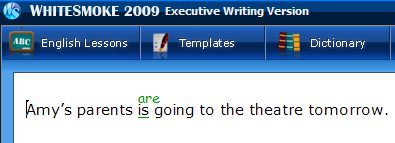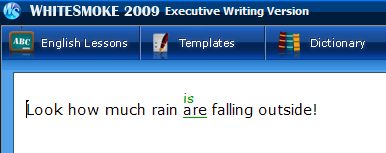Auxiliary-Verb Agreement - Common Errors in English
We already explored the importance of auxiliary verbs in English grammar here: Missing Auxiliaries. To refresh your memory, auxiliary verbs are helper verbs – they are small action words that can help to express the mood or tense of regular verbs. “Auxiliary” means “to help or support”, and that is exactly what auxiliary verbs do.
Step 1 is recognizing where you need an auxiliary verb, to affect the tense/mood of a main verb.
Step 2 is ensuring agreement between the subject and the auxiliary verb (in addition to the main verb).
Auxiliary-Verb Agreement Rules
Refresher:
10 modal auxiliary verbs - verbs which are only auxiliary, and are never used alone:
can, could, may, might, ought, shall, should, will, would, and must
All 24 auxiliary verbs (including modal verbs):
am, is, are, shall, should, be, being, been, was, were, will, would, has, have, had, do, does, did, can, could, may, might, must, ought
The key is to make sure the number of the subject matches the number of the verb.
Singular subjects = singular form of auxiliary verbs.
Plural subjects = plural form of auxiliary verbs.
Examples:
- Some of the books are missing. (are = plural; is = singular)
- She does not have your red bag. (does not = singular; do not = plural)
- The vegetables were growing in the sun. (were = plural; was = singular)
Fixing Auxiliary-Verb Agreement Mistakes with WhiteSmoke
Auxiliary-Verb Agreement Error #1:
Amy’s parents is going to the theatre tomorrow.
WhiteSmoke’s Suggestion:
WhiteSmoke’s Explanation:
The subject is plural (Amy’s parents), so the auxiliary verb “are” is plural. “Is” is the singular and therefore incorrect verb form.
Auxiliary-Verb Agreement Error #2:
Look how much rain are falling outside!
WhiteSmoke’s Suggestion:
WhiteSmoke’s Explanation:
The subject is single, or a countable noun (rain), so the auxiliary verb “is” is singular. “Are” is the plural, and therefore incorrect verb form.
Auxiliary-Verb Agreement Error #3:
My little brother do his homework before he goes to sleep.
Whitesmoke’s Suggestion(s):
WhiteSmoke’s Explanation:
The subject is single (my little brother), so the auxiliary verb “does” is singular. “Do” is the plural, and therefore incorrect verb form.



